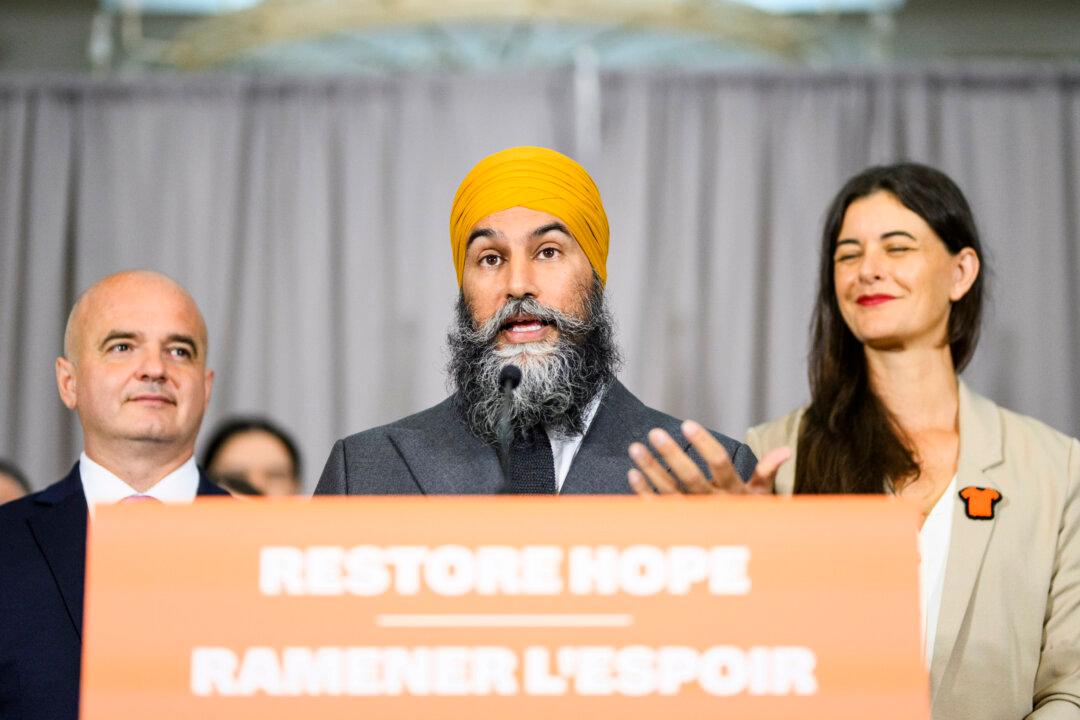NDP Leader Jagmeet Singh has signalled his party will come out against the Liberal government’s carbon tax, saying the existing scheme costs Canadians and that his party will have its own climate change policies.
“We want to see an approach to fighting the climate crisis where it doesn’t put the burden on the backs of working people, where big polluters have to pay their fair share,” Singh told reporters on Sept. 12 following three days of caucus meetings.





